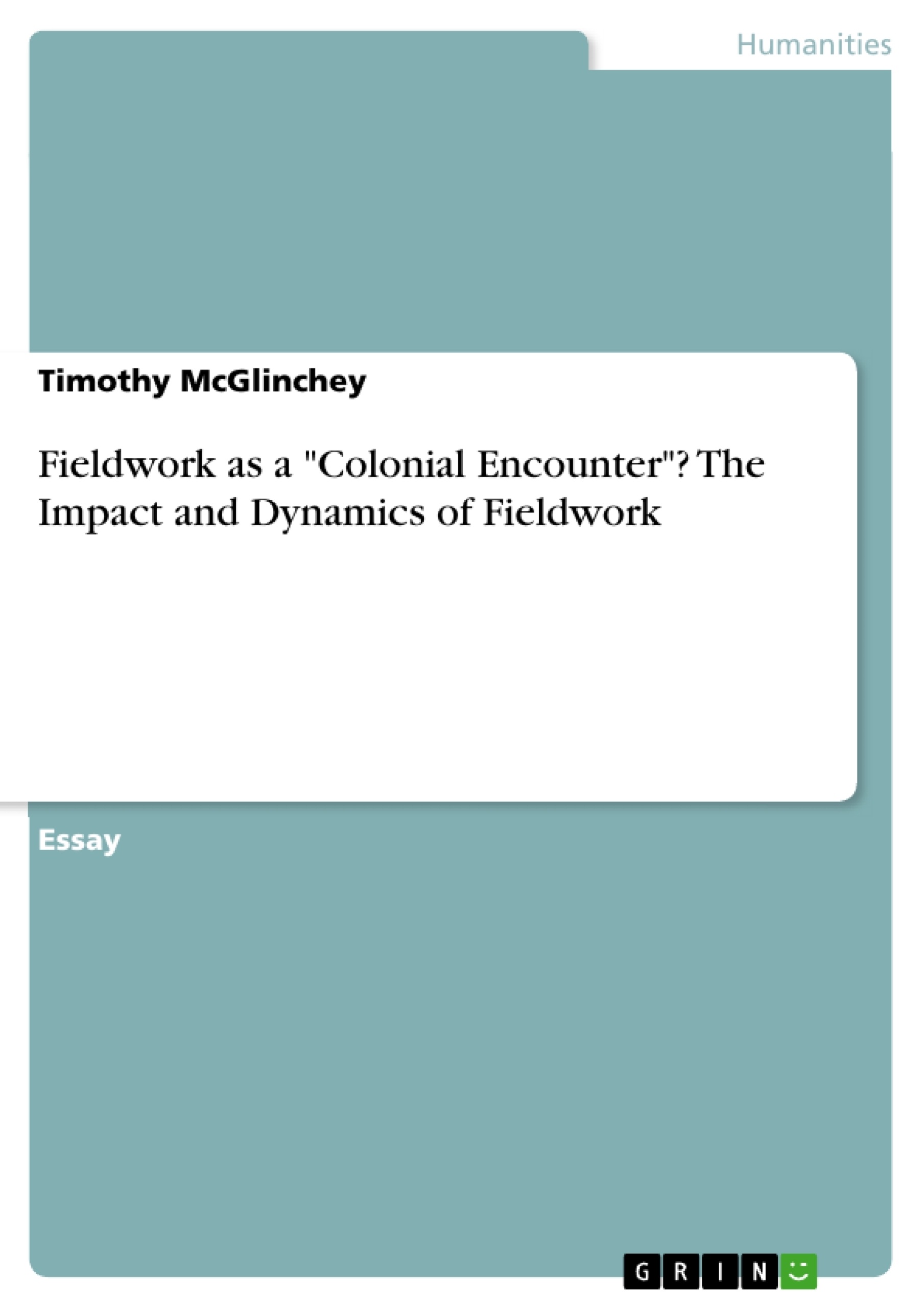I will explore the impact and dynamics of fieldwork in various settings, and seek to illustrate the extent to which the process itself resembles a “colonial encounter”. Before doing so, however, initial foundations must be laid through the clarification of terms, and detailing of context.
Concerning the role and significance of fieldwork within the context of colonialism, there remains considerable debate, as well as subjective interpretation, in light of its ambiguous contribution to the colonial objective, and the motivations behind its implementation.
Inhaltsverzeichnis (Table of Contents)
- To what extent can it be argued that fieldwork resembles a “colonial encounter”?
- Schumaker's (1999) case study of Northern Rhodesia from the 1920s to 1960s
- Lackner's (1973) writing on the effects and subsequent consequences of Indirect Rule in Eastern Nigeria between 1920 and 1940
Zielsetzung und Themenschwerpunkte (Objectives and Key Themes)
This essay aims to explore the relationship between fieldwork and colonialism, specifically examining the extent to which fieldwork can be considered a "colonial encounter." It analyzes the impact and dynamics of fieldwork in various settings, drawing on two primary case studies and influential theoretical perspectives.
- The nature of fieldwork as a research method in colonial contexts
- The role of anthropologists in colonial administrations
- The potential for fieldwork to reinforce colonial power structures
- The possibility of anthropologists challenging colonial authority
- The complexities of interpreting fieldwork in a colonial context
Zusammenfassung der Kapitel (Chapter Summaries)
Schumaker's (1999) case study of Northern Rhodesia from the 1920s to 1960s
This section examines the fieldwork practices of both colonial administrators and anthropologists in Northern Rhodesia during the late colonial period. It highlights the RLI (Rhodes-Livingstone Institute) and its role in collecting data for colonial development. The author argues that the objectives of fieldwork in this context often aligned with colonial interests, with anthropologists sometimes acting as agents of colonial power.
Lackner's (1973) writing on the effects and subsequent consequences of Indirect Rule in Eastern Nigeria between 1920 and 1940
This section explores the impact of Indirect Rule on Eastern Nigeria, focusing on the role of fieldwork in understanding and managing the region. It considers how fieldwork practices may have contributed to the reinforcement of colonial control and the perpetuation of existing power structures.
Schlüsselwörter (Keywords)
Fieldwork, colonialism, colonial encounter, anthropology, colonial administration, anthropologists, Indirect Rule, Northern Rhodesia, Eastern Nigeria, RLI (Rhodes-Livingstone Institute), power structures, objectivity, agency, "handmaiden of colonialism."
Frequently Asked Questions
What is meant by fieldwork as a "colonial encounter"?
It explores the idea that anthropological research in colonial territories often mirrored the power dynamics of colonialism, where researchers could be seen as agents of the colonial administration.
What was the Rhodes-Livingstone Institute (RLI)?
The RLI was a research institution in Northern Rhodesia that collected data for colonial development, often aligning its fieldwork objectives with British colonial interests.
How did "Indirect Rule" influence fieldwork in Nigeria?
Indirect Rule relied on understanding local power structures to manage the population. Fieldwork was used to gather this intelligence, which sometimes reinforced colonial control and existing hierarchies.
Could anthropologists challenge colonial authority?
Yes, while some acted as the "handmaiden of colonialism," others used their fieldwork to critique colonial policies and provide a voice for the colonized populations.
Why is the role of fieldwork in colonialism still debated?
The debate continues because the motivations of researchers and the actual impact of their data were often ambiguous, subject to both colonial manipulation and scientific independence.
- Quote paper
- Timothy McGlinchey (Author), 2015, Fieldwork as a "Colonial Encounter"? The Impact and Dynamics of Fieldwork, Munich, GRIN Verlag, https://www.grin.com/document/322772



